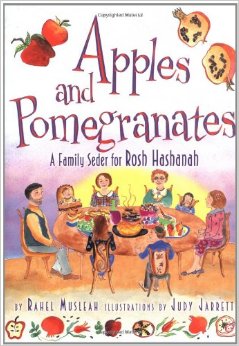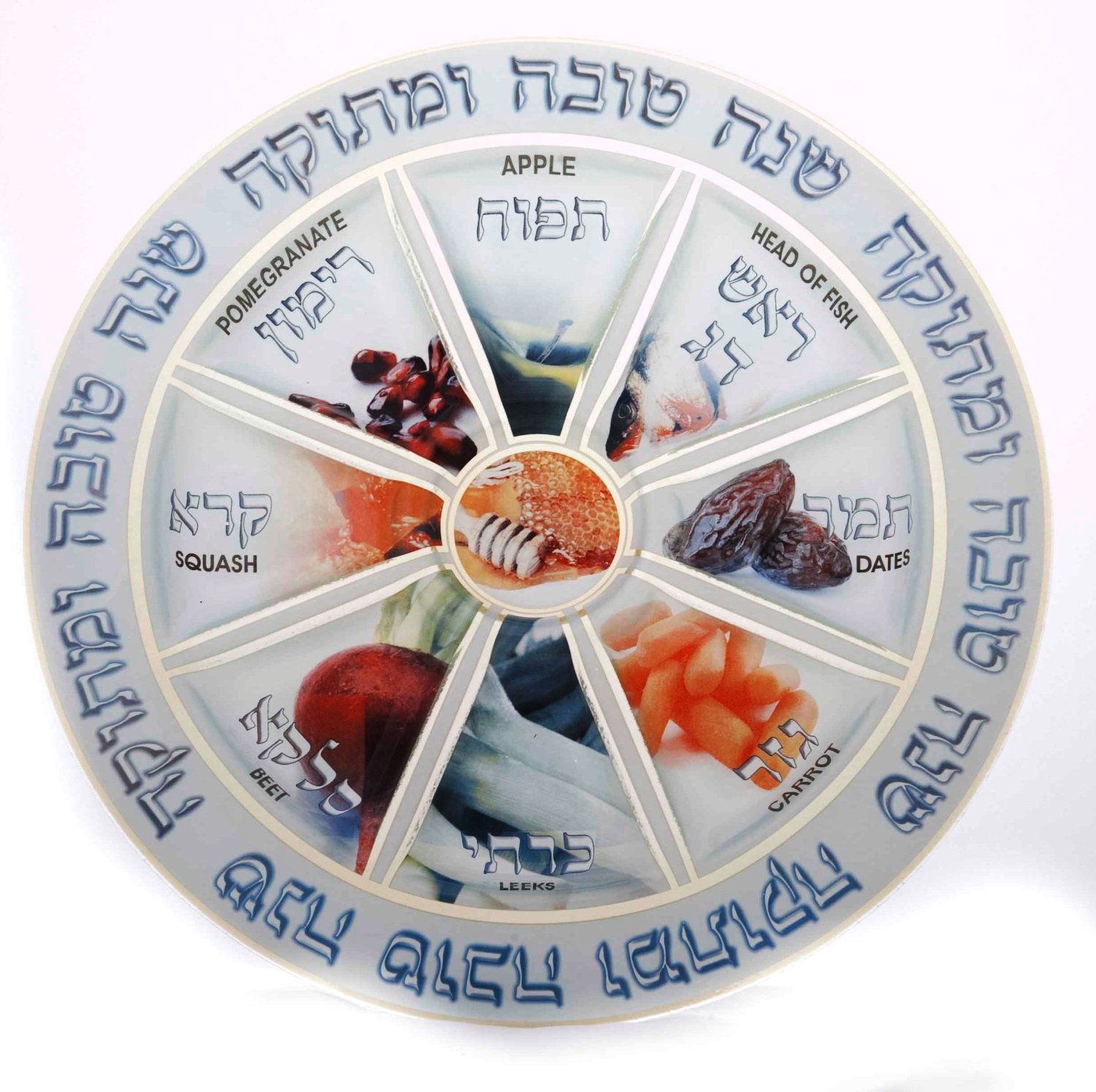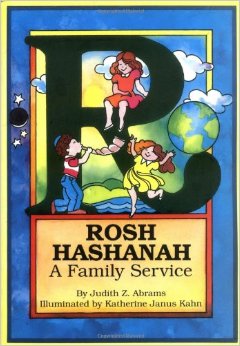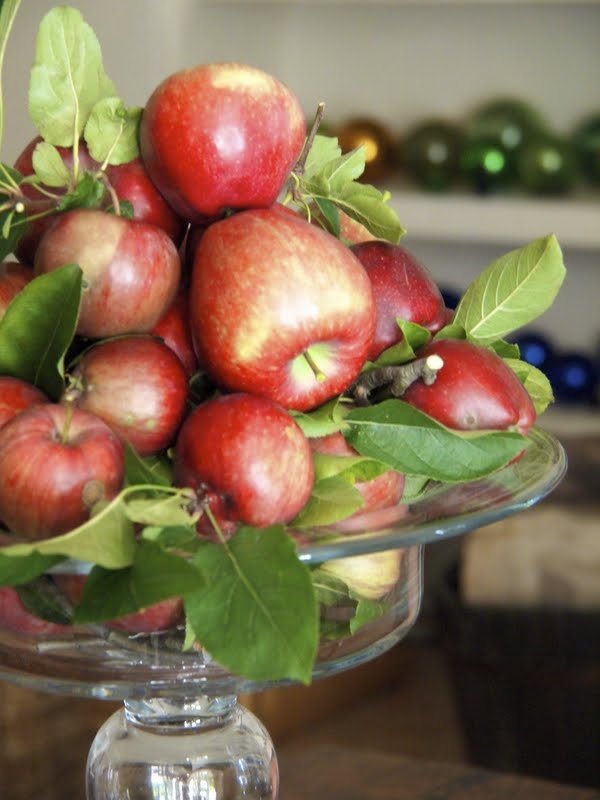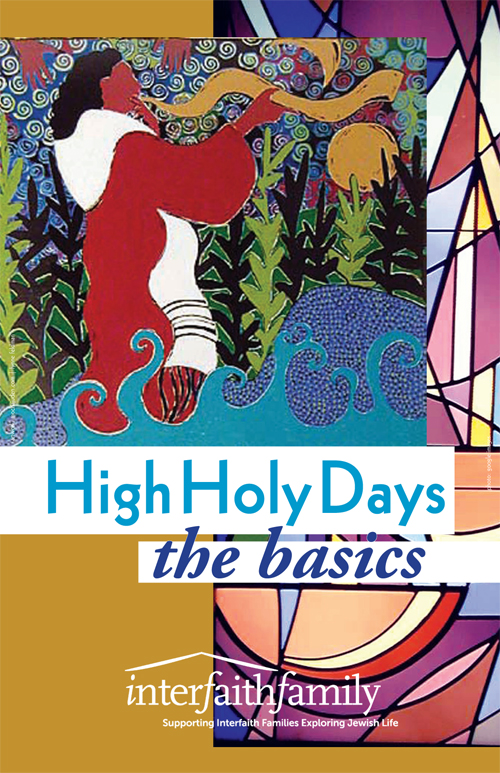Rosh Hashanah seders have increased in popularity over the last few years, and, like the Passover seder, the serving of symbolic foods is an important part of the ritual. This article from JWeekly.com explains why we eat certain foods on Rosh Hashanah and what each one symbolizes. Luckily substitutions are often made for the fish or sheep’s head!
You can even find Rosh Hashanah seder plates to use during your meal. Here is a pretty Rosh Hashanah Seder Plate with sections for each of the traditional foods in both Hebrew and English:
If you’ve never heard of or participated in a Rosh Hashanah seder, there are a few books out there that offer some guidance and background. Apples and Pomegranates: A Family Seder for Rosh Hashanah outlines ways for your family to worship during Rosh Hashanah based on a traditional Sephardic service featuring seasonal foods that symbolize abundance. It also offers folk tales and holiday activities.
There is also Rosh Hashanah: A Family Service. The service is built around the concepts of tefillah (prayer), teshuvah (repentance), and tzedakah (sharing). It includes readings to challenge older children and adults, as well as stories, pictures and songs to capture the attention of young children.
Are any of you planning to hold a seder for Rosh Hashanah? What elements are you incorporating into your seder?


